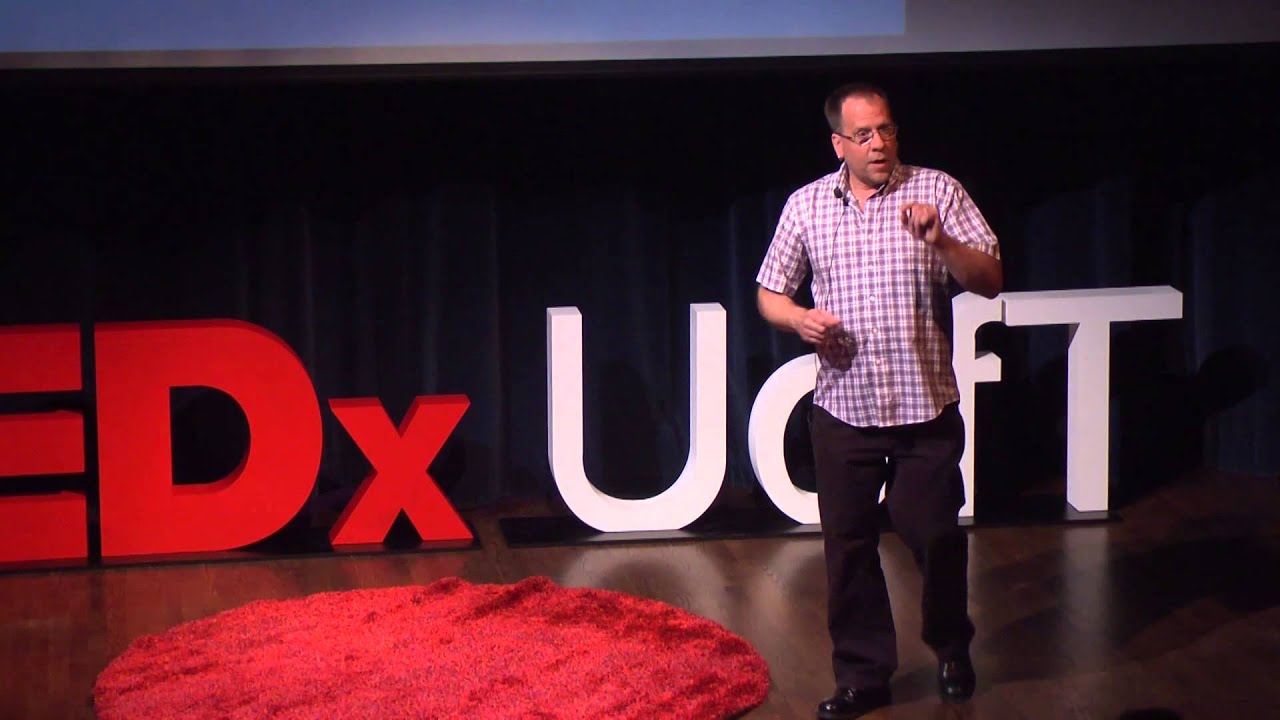Dr. John Vervaeke is a professor at the University of Toronto since 1994 where he currently teaches courses in the cognitive science and courses in the Buddhism, psychology and mental health program on Buddhism and Cognitive Science, the Science of Mindfulness Meditation, and the Cultivation of Consciousness through instruction in vipassana meditation, metta contemplation, and tai chi chuan. His research interests are relevance realization, insight problem solving, general intelligence, consciousness, mindfulness, rationality, and wisdom.
About TEDx
In the spirit of ideas worth spreading, TEDx is a program of local, self-organized events that bring people together to share a TED-like experience. At a TEDx event, TEDTalks video and live speakers combine to spark deep discussion and connection in a small group. These local, self-organized events are branded TEDx, where x = independently organized TED event. The TED Conference provides general guidance for the TEDx program, but individual TEDx events are self-organized.* (*Subject to certain rules and regulations)
TEDx Talks
Source




My favourite talk of the event. It was engaging, powerful, and answered a lot of questions I had regarding the existential state the worlds seems to be in. Love it, and I would watch it again and again!
Definitely one of the best profs I have had at UofT! Great TEDTalk
I miss his classes so much.
Absolutely powerful! This man is a prophetic of coming human enlightenment! Hope to meet him some day.
Imagine how would we evolve if human longevity would stretch
into 200-300 years, what kind of masters there would be?..
Here's a cool book which adds to this video:
http://www.amazon.co.uk/Five-Minds-Future-Howard-Gardner/dp/1422145352/
Vervaeke is one of the most memorable profs I ever had. His Philosophy of Psychology course opened my mind in several ways I never would have thought possible. Excellent video, fantastic work and research, I expected nothing less than magnificence from him.
information glut + wisdom famine. now there's an insight 🙂
Omg this guy is angry!
sorted
Amazing and very intelligent Prof! Had him in Learning and Plasticity Class. He definitely knows his stuff and has a gift in teaching. One of UofT's bests!
It's time we focus on internal rather than just external..
G8 Talk., Finally Science is realising wisdom is more important than just facts n that's A FACT
Fascinating
wow what program do i need to take to hear this guy WOW
We know that the Greek pre-socratics, right back to Thales the very first Greek sage, in that same First Axial Age, studied under Egyptian Priests. Also Pythagoras. I understand that many others did as well but I wish to be objective with my citations. We also have later religious accounts of the … magical knowledge if you will (sacred? scientific?)… of the Egyptians. (For example, the book of Exodus, and much later after Greece established the library of Alexandria, Jesus grew up in Egypt learning to a scholarly level with 3 languages and accounts of his knowledge). There is also prevalent accounts of the Eastern wisdom, that is regarded as ancient I would infer, being transmitted to the West. So it seems that Western civilization was wildly impacted by something that helped cause the First Axial Age.
Perhaps, the first Axial Age was the Second. I argue the facts suggest it was.
A New Interpretation of Mindfulness
Arguably the most influential non-religious movement to advance personal happiness and satisfaction in present times is the variant of meditation called ‘mindfulness’. Simply defined, mindfulness represents continuous non-judgmental awareness. But the converse of non-judgment, namely making judgments, may entail negative outcomes (perseverative judgments as represented by rumination, worry, or distraction) or positive ones (non-perseverative judgments on what to have for dinner or what route to take on the way home). Perseverative cognition is uniquely correlated with stress, anxiety, and depression, but non-perseverative thought (as well as thinking of nothing at all) is correlated with relaxation, positive affect, and feelings of happiness. Thus it may be concluded that the definition of mindfulness over-prescribes the type of cognitive operations that need to be curtailed in order to attain positive emotional outcomes. It follows that the definition of mindfulness must be attenuated to represent the avoidance of perseverative judgments alone. By no means does this invalidate mindfulness, rather it merely determines the type of judgments we should be mindful about, and allows one to be easily mindful all of the time rather than from time to time that is the practical result of avoiding all judgment, and significantly enhances the argument for its practice.
This definition of mindfulness complements the ‘perseverative cognition hypothesis’ which associates the debilitating aspect of stress with perseverative cognition alone. As advanced by the psychologists G. Brosschot and JF Thayer, “The perseverative cognition hypothesis holds that stressful events cannot affect people's health, unless they think repetitively or continuously (that is, 'perseverate cognitively') about these stressful events. Stressful events themselves are often too short, as are the physiological responses to them. Therefore, the physiological responses during these stressors are unlikely to cause bodily harm. More importantly, many stressful events are merely worried about, or feared in the future, while they often do not happen or do not have the feared consequences. Nevertheless, the body reacts with prolonged physiological responses to continuous thoughts (perseverative cognition) about these stressors. Therefore, it is the perseverative cognition, and not the stressors that can eventually lead to disease. In scientific terms, it is said that perseverative cognition is a mediator of the detrimental effects of stress on one's health.”
https://en.wikipedia.org/wiki/Perseverative_Cognition
The little book that follows is the first attempt to explain these two complementary hypotheses using a neurologically informed theory of learning. Learning theories simply explain how information imparted from experience shapes both covert and overt behavior, and it is my purpose not only to redefine and explain mindfulness, but to justify it.
The book of course is free.
https://www.scribd.com/doc/284056765/The-Book-of-Rest-The-Odd-Psychology-of-Doing-Nothing
I hope this guy is right.
don't wory, humanimals and their societies are governed by their DeepAnimal parts of brain… not much change in thousands and thousands of years… politico-oligarchical predators living off the herds of mental herbivores, with the help of mindfcukers (be it ancient cult or modern socialist religion)… and don't be fooled by the fact that the memetic supercivilization of Intelligence (living in <1%) gives the underlying humanimals all these ideas/science/tech)
Awesome
This guy seems the real deal from Toronto's psychology department – not a certain other prof I could mention. True enlightenment
Man, I'm so excited about this
Anyone who accepts the nonsensical “solution“ to the task set with the nine dots has failed the real test of “detecting when they’re being mislead” through semantic ambiguity.
Well John, you are an other giant who does not act like one, like your friend Jordan Peterson. Must be Toronto air ; ) Saw other Videos of you and yesterday also, you both debating. Was the best debate I've ever seen: deep, funny and at the edge! Thanks for all you do John!
What Persia as a centre for the axial age? Zoroastrianism, duh? Funny how these left-over vestiges of colonial racism is so hard for some people to get rid of!
Prof. Vervaeke rules.
Pretty smart Prof talking pretty smart things but here I am just thinking – if only Seth Rogen did College without smoking all that Ganja!
Why on earth would someone downvote this? Lol, some people…
this was freaking MIND BLOWING
Jung thought that Psychology and Physics were tightly networked.